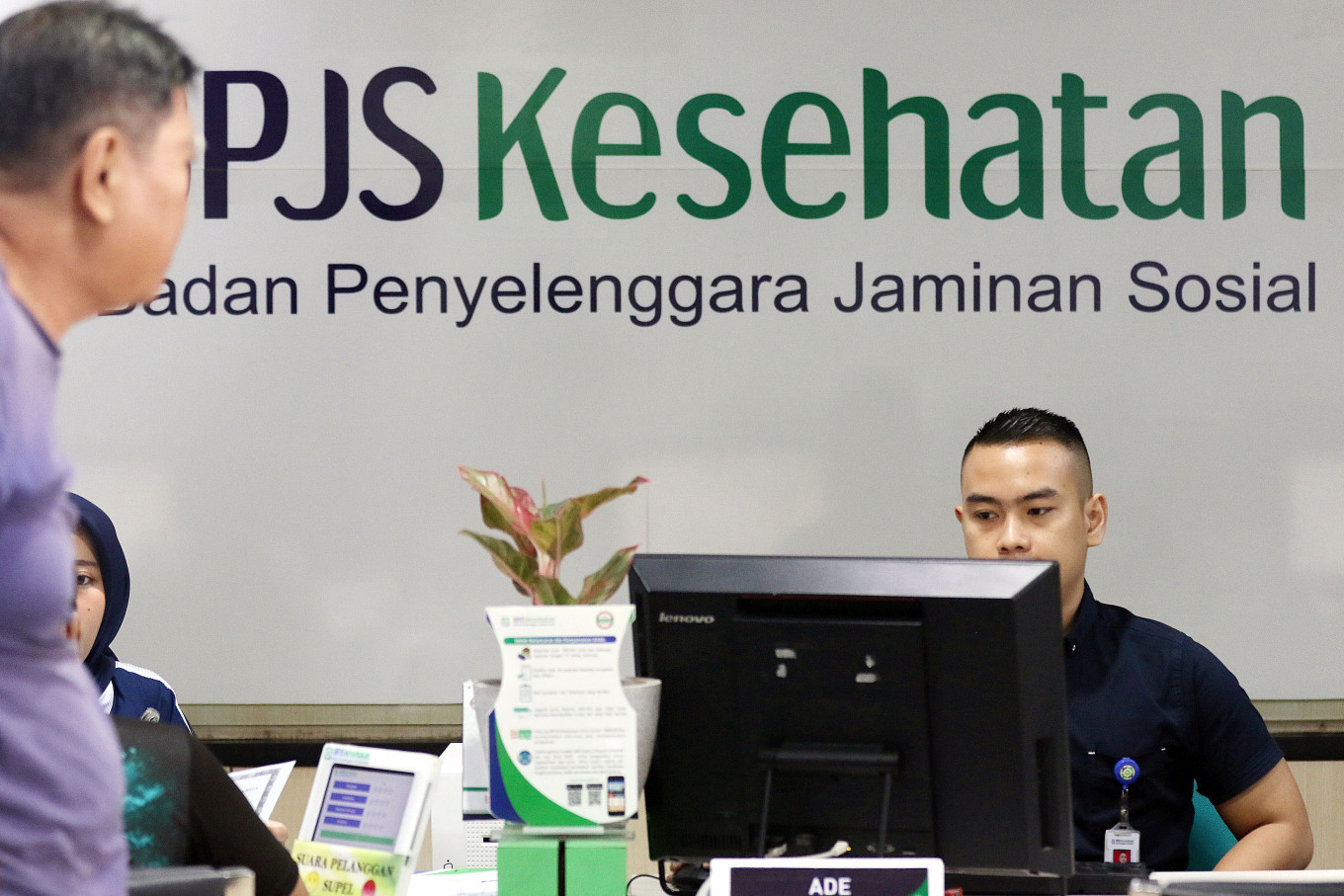Popular Reads
Top Results
Can't find what you're looking for?
View all search resultsPopular Reads
Top Results
Can't find what you're looking for?
View all search resultsGovernment accused of undermining rule of law in JKN premium hike
Change text size
Gift Premium Articles
to Anyone
A
fter being criticized for undermining the rule of law in a series of COVID-19 pandemic response policies, the government is under scrutiny once again for reviving a national health insurance (JKN) premium hike after it was annulled by the Supreme Court.
In a presidential regulation that came into effect in January, the government increased premiums to protect the Health Care and Social Security Agency (BPJS Kesehatan), whose JKN program covers about 223 million people, or 83 percent of the population, from experiencing a wider deficit. The agency recorded a Rp 13 trillion (US$877 million) deficit last year as premium collection fell short while claims soared.
But the policy was revoked by the Supreme Court in late February on the grounds that it violated a number of laws.
Roughly two months after the court ruling, President Joko “Jokowi” Widodo issued another, similar regulation to increase premiums.
Law experts described the move as disgraceful and accused the government of setting a bad example for the general public trying to uphold the rule of law.
“The President should have been a role model for the public in abiding by rulings," said Feri Amsari, a constitutional law expert at Andalas University in West Sumatra. "The government should have respected the rule of law."
The 2009 Supreme Court Law does not specify whether policymakers are allowed to reissue regulations similar to those that have been annulled by the court.
But Feri said the law signaled that an annulled regulation could not be revived because a ruling against a regulation rendered it void.
Citing one of the court's considerations, Arif Maulana from the Jakarta Legal Aid Institute (LBH) said that the public should not bear the brunt of the BPJS deficit, which stemmed from its failure to manage cash flow.
Executive Office of the President undersecretary on human development Abetnego Tarigan maintained that the government, not the court, had the authority to adjust premiums. He said that the state budget could no longer cover the BPJS deficit.
The government also welcomed the public to challenge the new policy at the Supreme Court, amid a plan by the Indonesian Hemodialysis Patient Community (KPCDI), which won the case against the earlier premium increase in late February, to once again request a judicial review of the latest premium hike.
“Everyone is allowed to exercise their rights to challenge any regulations issued by the government,” Abetnego said.
Supreme Court justice and spokesman Andi Samsan Nganro said the President had the prerogative to issue a regulation similar to one that had been annulled by the court.
Public health advocacy groups have recently demanded that the government improve access to health services for all JKN policyholders paying higher premiums.
The Corruption Eradication Commission (KPK) found in a study in March that the BPJS could save as much Rp 12.2 trillion through stricter insurance claim management, including by limiting claims for noncommunicable diseases, which account for the largest burden on the JKN, rather than through premium hikes.
The new premiums will come into effect in July. First-class service premiums will increase from Rp 80,000 to Rp 150,000 per person per month, and second-class service premiums will increase from Rp 51,000 to Rp 110,000.
The premium for the third-class service will increase by a smaller amount, from Rp 25,500 to Rp 42,000, and the government will provide a subsidy for this service category, allowing participants to pay Rp 25,500 per month this year and Rp 35,000 next year.










